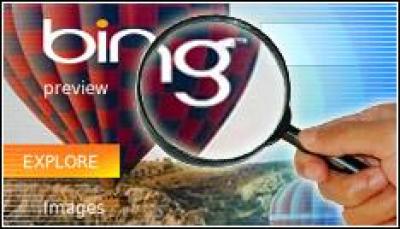Microsoft Looks To Air Travel With Bing Airport Maps

Microsoft has upgraded its Bing Maps feature to include detailed airport maps for air travellers
Microsoft is hoping to make life easier for air travellers (at least in the United States to start with), by offering detailed airport maps.
“The new airport maps give you everything you need to navigate your way through your travels,” reads a 29 September posting on the Bing Community blog.
“Airport maps include information on parking garages, ticket counter information, terminals and gates, baggage claims, currency exchange and more.” That ‘more’ includes a directory of eateries and airlines.
Other Upgrades
Via the desktop version of Bing, users can access this map by typing the name of the airport into Bing Maps and then zooming into the building itself, or searching for their flight status on Bing and then clicking on the map icon visible alongside the airport listing.
Bing is kicking off this service with 42 airports in the United States, with plans to add more over time.
When you combine Bing’s search engine market share with that of Yahoo, which agreed to let Microsoft power its backend search apparatus, then it owns roughly one-third of that market. Google controls the other two-thirds.
 While Bing lags Google in terms of broader market numbers, it remains a pillar of Microsoft’s increasingly cloud-centric corporate strategy. Because of that, Microsoft continues to add new features to the engine: on 23 September, for example, it announced the launch of Bing Deals, a website that aggregates more than 200,000 deals from the likes of Groupon, LivingSocial, Nordstrom and Target.
While Bing lags Google in terms of broader market numbers, it remains a pillar of Microsoft’s increasingly cloud-centric corporate strategy. Because of that, Microsoft continues to add new features to the engine: on 23 September, for example, it announced the launch of Bing Deals, a website that aggregates more than 200,000 deals from the likes of Groupon, LivingSocial, Nordstrom and Target.
Destination Information
In order to further differentiate itself from Google, Bing has also begun deeply integrating Facebook features into search. When users search for a specific person, for example, Bing now presents Facebook information on the search-results page; if they’re travelling to a new city, such as Tokyo, Bing will tell you which Facebook friends live there. The social network’s increasingly ubiquitous “Like” button also makes an appearance in Bing results.
“Decisions don’t get made on rationality alone,” Bing director Stefan Weitz told eWEEK in a May interview. “People ask other people for information. Eighty percent of the people making a purchase online will delay that decision until they ask someone else.”
That Facebook integration, and a heavy focus on targeted services such as airport maps, are but a few of the ways that Microsoft hopes to keep Bing battling toe-to-toe with Google.